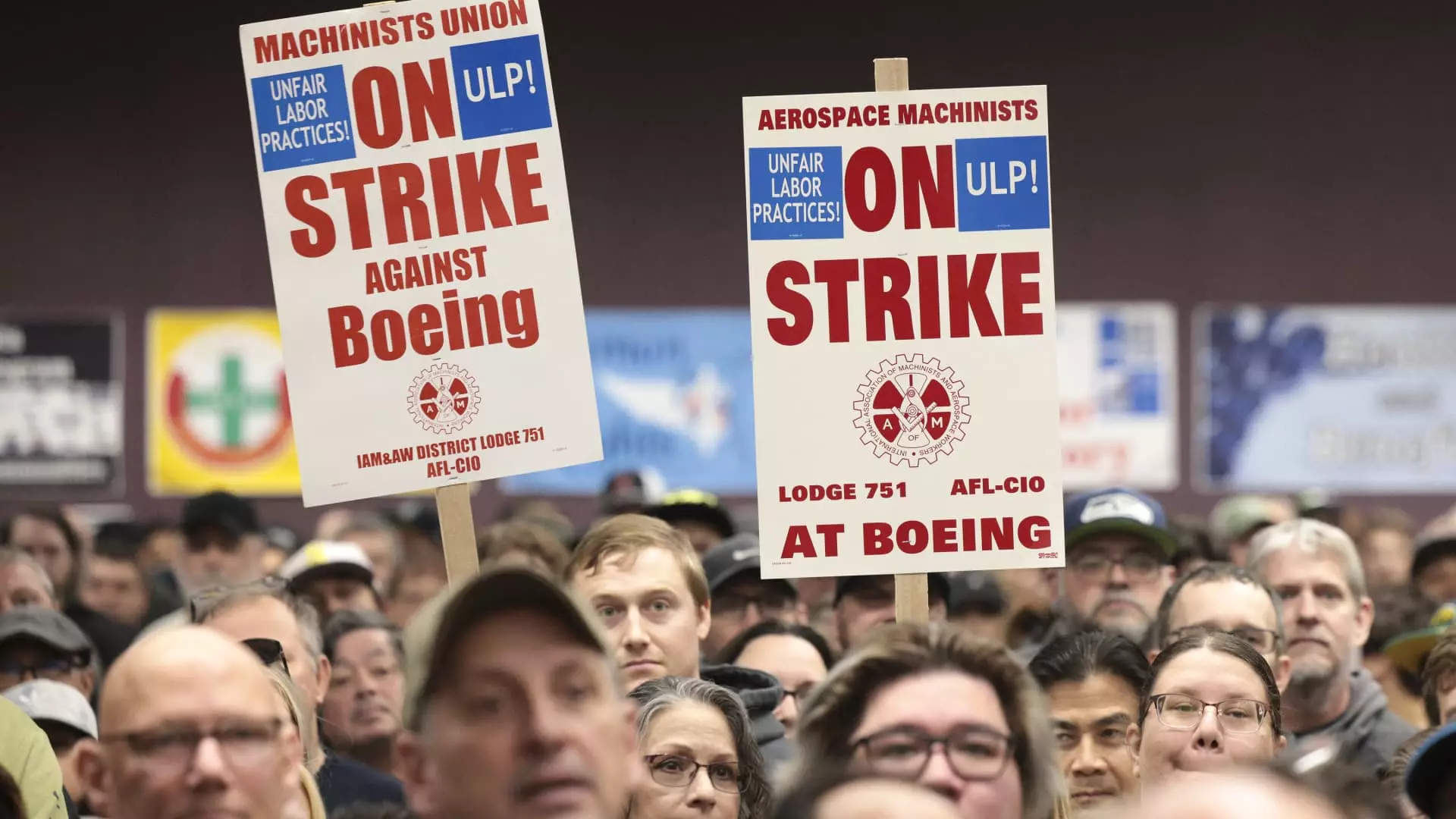After weeks of intense negotiations, Boeing and the International Association of Machinists and Aerospace Workers District 751 have both presented a new contract proposal. This development comes in the wake of a strike that significantly impacted aircraft production since September 13. Union representatives expressed optimism over a deal they believe may finally resolve an ongoing dispute that has left both employees and the company in a precarious position. The ratification vote scheduled for Wednesday not only signifies a potential end to labor unrest but also crucially influences Boeing’s financial health and operational stability.
The new proposal reportedly offers workers a substantial wage increase of 35% over the next four years, alongside an attractive signing bonus of $7,000. Additionally, benefits such as minimum payouts in an annual bonus program and enhanced contributions to 401(k) plans suggest an effort to provide employees with a better financial outlook. These changes aim to address the grievances raised by workers who initially rejected a prior offer that included only a 25% wage increase. This response indicates a firm stance from employees regarding fair compensation, especially in light of the high-stakes, high-pressure environment in which they operate.
The Stakes for Boeing
Boeing’s reputation is at a critical juncture as it battles not just labor issues but an ongoing safety crisis. The company is grappling with the aftermath of a serious incident involving the 737 Max that has called into question its commitment to safety standards. Compounding these woes, Boeing has projected a significant loss of around $5 billion across its commercial and defense units, making the successful negotiation of this contract even more vital. The new CEO, Kelly Ortberg, who took office amid these challenges, faces immense pressure to not only stabilize operations but also regain public trust.
Acting U.S. Secretary of Labor Julie Su’s involvement in the negotiations highlights the significance of federal mediation in resolving labor disputes. Her direct engagement with both parties aims to bridge the gap, emphasizing the importance of maintaining a productive workforce amidst rising economic concerns. The union’s acknowledgment of Su’s role suggests a cooperative spirit that may lead to a more harmonious workplace, provided the proposal is ratified.
A Turning Point for Boeing’s Future
The outcome of Wednesday’s vote carries implications beyond the immediate relief it may bring to Boeing’s workforce. If ratified, it could pave the way for a new chapter in Boeing’s narrative, one where stability and productivity are prioritized. For Ortberg, a successful resolution could reignite confidence in leadership, signaling a commitment to reform and responsiveness to employee needs. As the aviation giant grapples with multiple crises, the next few days will be pivotal in determining not just the fate of thousands of workers, but also the overall direction of Boeing as it seeks to emerge from a challenging era.


Leave a Reply